If you’ve started a vegan diet for weight loss but have not seen the results you desire, learn how to lose weight on a vegan diet with these tips. While any weight loss plan is challenging, these strategies will help you see your desired results while enjoying nutritious plant-based foods.
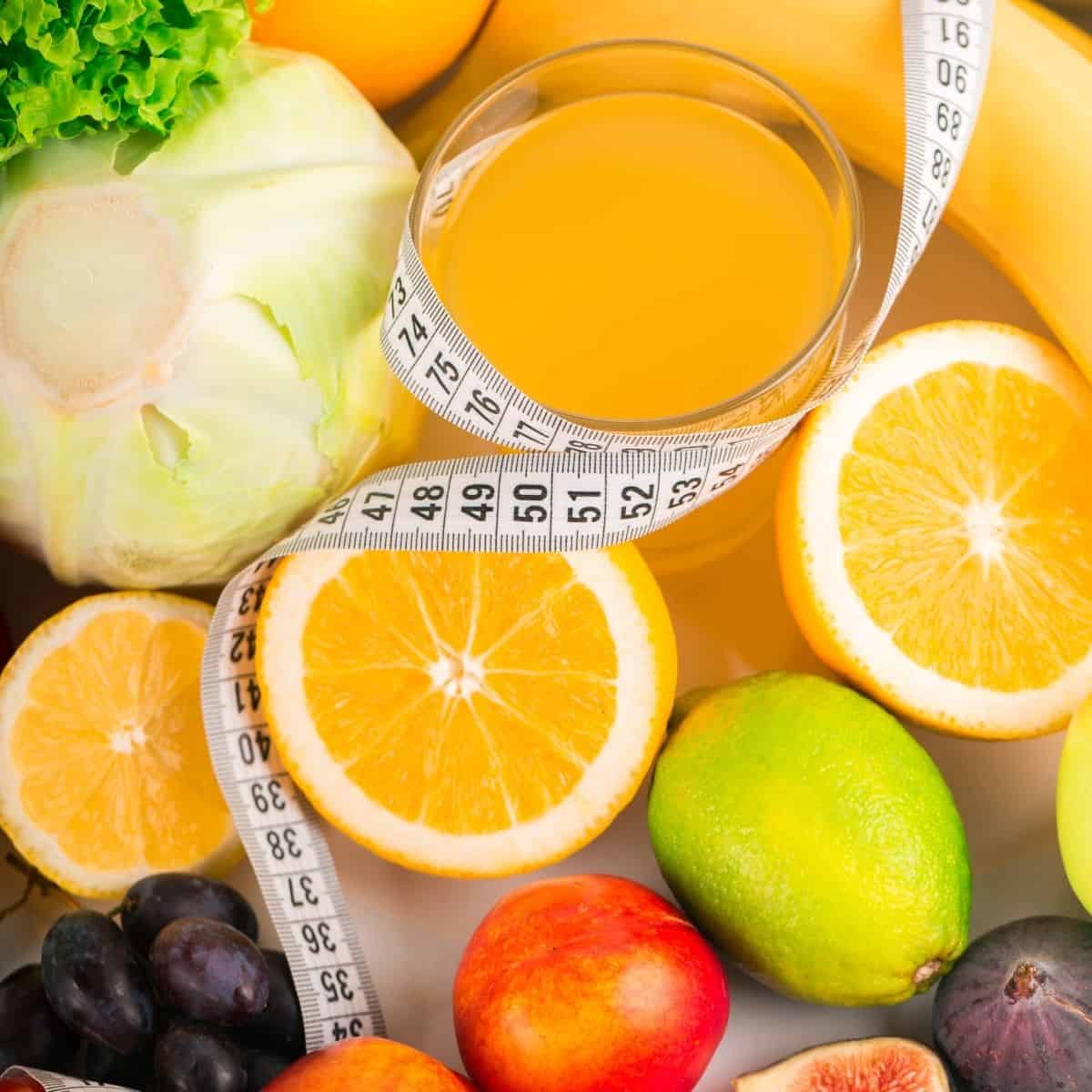
In this article, we’ll go over the pros and cons of a vegan diet for weight loss, why you may gain weight instead of losing it, and the dos and don’ts of which foods to eat for weight loss.
While some people think it is easier to lose weight as a vegan, others who make the change might not see the results they expected. Plant-based vegans eat only whole foods, which are healthier and tend to aid in weight loss. These foods include vegetables, legumes, whole grains, lentils, and plant-based proteins such as tofu and tempeh.
If you’re switching to a vegan diet, you may want to consider a vegan multivitamin supplement to ensure you get all the nutrients your body needs. By the end of this article, you’ll have the tips you need to start a plant-based weight loss plan!
Jump to:
- Is it easier to lose weight as a vegan?
- What is a vegan diet?
- How long does it take to lose weight on a vegan diet?
- Can a vegan diet cause weight gain?
- Why you’re not losing weight on a vegan diet?
- How do vegans lose weight fast?
- How to Start a Vegan Diet for Weight Loss
- Healthy Vegan Foods For Weight Loss
- Vegan Foods to be Cautious of When You’re Trying to Lose Weight
- What To Do When You’re Not Losing Weight On A Vegan Diet
- Benefits of Following a Vegan Diet
- More helpful vegan weight loss tips and recipes!
Is it easier to lose weight as a vegan?
This depends on what your body is used to eating. For instance, if you are in the fast-food drive-thru every day, loading up on greasy, high-calorie foods, you will probably lose weight by switching to a vegan diet (and your body could probably use the detox!).
If you already eat vegan, you may need to switch up your foods to ensure they are high in nutrition and look into your portion sizes to lose weight. I will say that because most of the foods included in a vegan diet are unprocessed, they are low in calories but packed with nutrients, making it easier to lose weight than a diet with, say, sugary protein bars or other processed foods. If you’re considering a vegan meal prep delivery like Ideal Nutrition, the meals are labeled so you can control what you eat and how many calories you consume.
What is a vegan diet?
A vegan diet includes plant-based proteins and healthy fat from unprocessed plants such as nuts, veggies, fruits, and whole grains. Vegans avoid all dairy, including milk and cheese products, as well as eggs and animal products of any kind, such as meat or products derived from animals.
How long does it take to lose weight on a vegan diet?
Again, this depends on your previous eating habits, activity level, food choices, and portion sizes. Keep in mind that everyone’s body is different. Some people may see weight loss in a few weeks; for others, it takes a few months.
This all depends on your age, gender, metabolism, and many other factors that come into play for weight loss. Even though you can’t control these things, if you increase your exercise and decrease the number of calories consumed, you will see weight loss on a vegan diet.
Can a vegan diet cause weight gain?
Yes, as with any diet, if your vegan diet is filled with fats, and foods high in carbs and sugars, you may gain weight. For example, I LOVE sweet potatoes. If I’m not careful, I could eat a whole tray of them when roasted. If I did that, I would probably gain weight instead of losing it.
This is where your self-control comes into play. Watch your portion sizes and food choices. Also, everyone’s body is different. You may have a food sensitivity that you are unaware of. If you’re sticking to a healthy vegan diet and exercising but still gaining weight, food sensitivity is something you may want to consider.
Why you’re not losing weight on a vegan diet?
You may not lose weight on your vegan diet for several reasons.
- You’re eating processed vegan foods.
- You’re not eating enough.
- Your portions are too big.
One reason could be your food choices. When people think “vegan,” they think “healthy,” but remember that just because something is vegan does not mean it will aid in weight loss.
There are still processed vegan foods out there! Many of these contain hidden sugars and unhealthy fats. Try to stick to whole foods, and check your labels.
Another issue could be that maybe you are not eating enough. I know that may sound crazy. Eating less should help you lose weight, right? While that can be true, your body still needs certain things in a healthy diet. If you don’t eat enough, it can affect your metabolism and thyroid, and you may gain weight. I like to set a daily calorie goal and keep a food journal to ensure I stick to it. This is a great way to hold yourself accountable.
The most common reason people don’t lose weight on a vegan diet is portion control. Some people think they can eat more because they are eating healthier, which can cause weight gain. Keep reading to learn some methods for portion control.
How do vegans lose weight fast?
Any diet or weight loss plan is going to take time and patience. If you lose a lot of weight quickly, it is likely water weight. While going vegan can help you lose weight fast, remember that this is a marathon, not a sprint. Follow the guidelines below to start following a vegan diet for weight loss.
How to Start a Vegan Diet for Weight Loss
Cut Back on Your Daily Calorie Intake
To make a long story short, burning more calories than you consume equals weight loss. To do this, you want to watch how many calories you eat daily. One way to lower your intake is to cut back on fatty oils, nuts, and other foods that may be high in calories. A common mistake vegans make when they want to lose weight is to consume high-fat foods such as avocados and nut butter. While both foods are healthy in moderation, they are high in calories. This can quickly escalate your calorie intake and take you over a deficit.
Portion Control
Okay, I know I’ve said this one repeatedly, but that’s how important it is! Just because a vegan food doesn’t mean you should overeat it. Measure out your portions for each meal and snack into healthy amounts. Set a daily goal of calories, fat, etc., and stick to it.
Meal Prep Helps!
Creating a vegan meal prep plan makes all the difference! Having your food ready to go for the week or even for the next day helps with self-control and portion sizes. It also just makes your life easier during the week! Using an app such as Lasta can help you easily plan healthy and nutritious meals while keeping track of your daily goals. If you have everything made and portioned out, you’re also less likely to veer off your diet and eat something that probably won’t aid your weight loss goal. In addition to prepping, keep a daily food journal to hold yourself accountable.
Read the Labels
Even if something is vegan, it can still be processed and has hidden fats and sugars, making losing weight more challenging. Make sure you are reading over the ingredients list of everything you buy. Try to stick to whole, low-calorie foods as much as possible, and avoid vegan junk food like chips and cookies.
Protein is important!
Incorporating protein into a vegan diet can be tricky, but it is an essential element that will help keep you full and prevent snacking or overeating later. Be sure that you have enough protein in your daily diet. A protein deficiency can slow your metabolism, making it difficult to lose weight.
Healthy Vegan Foods For Weight Loss
These are some of my favorite foods to keep on hand for weight loss on a vegan diet. They are nutritious, low in calories, and help you stay full. I also have a list of helpful store-bought plant-based snacks that are great for when you’re on the go!
- Zucchini Noodles (or, as I like to call them, zoodles)
These will help satisfy your pasta cravings with something wholesome rather than empty calories. They even taste good without any sauce!
- Berries
These are good to have on hand when you want a sweet treat. They’re low in calories and high in nutritious values.
- Apples
Apples are high in fiber and a great snack. They are also full of vitamins and nutrients and keep you feeling full.
- Black Beans and Chickpeas
I keep both dried and canned black beans and chickpeas in stock. They are simple to add to salads, tacos, soups, and chilis. They are high in protein and low in calories.
- Hemp Seeds and Chia Seeds
Hemp seeds and chia seeds are a pantry staple. They are full of protein and fiber, among many other health benefits. Ground hemp seeds are great in a fruit smoothie!
- Cauliflower
I love cauliflower’s versatility. You can eat it raw, steamed, or even mashed. Its low-calorie content makes it an excellent food for weight loss on a vegan diet.
- Hummus
Hummus is one of my favorite foods (and something that I have to control my portions!). It’s a filling snack full of protein and fiber, which will help you stay full.
- Oats
High in fiber, low in calories, and super filling, oatmeal makes an excellent breakfast option that will keep you full and satisfied until lunch!
- Fruits and Vegetables
Fruits and vegetables are high in vitamins, minerals, and fiber. You don’t need to count your calories for fruits and vegetables. Stock up on leafy greens like spinach and kale, higher fiber high, protein broccoli, antioxidant-rich Brussels sprouts, and sweet oranges for a healthy, sweet treat.
Vegan Foods to be Cautious of When You’re Trying to Lose Weight
- Nuts and Nut Butter
While nuts are high in protein and can keep you full, they also contain fats. If you decide to incorporate nuts into your diet, make sure that you limit them. Raw almonds and a bit of peanut butter go a long way!
- Olive Oil and Other Oils
Olive oil is a sneaky ingredient that may prevent weight loss. While it has many health benefits, it also has many calories.
- Quinoa and Brown Rice
Quinoa and brown rice have a reputation for being very healthy foods (they are, don’t get me wrong, full of nutritious benefits), but if weight loss is your goal, you’ll want to limit these foods in your diet because of their high-calorie count. Stick to one serving of 100 grams daily or about half a cup.
- Fruit Juice
While juice is made from fruit, it is high in sugar and calories and loses the fruit’s fiber when it turns into juice. Drink water instead.
- Dried Fruit
Dried fruit is often high in sugar. You don’t need to cut it out completely, but you should limit your serving size.
- Vegan “Junk Food”
There are so many foods out there with a vegan label that are just recreated junk food. Examples are vegan frozen pizza, brownies, ice cream, etc. Avoid these foods – they can still be very high in calories.
- Vegan Meat Substitutes
These packaged foods are tempting for those who are starting a vegan or vegetarian diet as they offer a convenient alternative to animal products. However, it is important to note that these substitutes are often high in sodium, and processed ingredients.
What To Do When You’re Not Losing Weight On A Vegan Diet
If you follow the tips above, you will likely lose weight on your vegan diet. If you’re not, consider the following…
- Consider your food choices.
- Evaluate your portion sizes.
- Increase your activity level.
Are your food choices high in fat and calories? Are they processed? Then think about your portion control. Are you overeating these foods? Are you eating enough each day? Consider your activity level each day. Are you burning more calories than you are consuming?
If you’ve done all of this and still aren’t losing weight, you may have a thyroid issue or a food sensitivity. You should talk this over with your physician.
Benefits of Following a Vegan Diet
You will be more likely to lose weight if you follow a whole food plant-based diet, and you will likely notice other health benefits.
- Reduce the risk of developing type 2 diabetes
- Decrease the risk of heart disease
- Lower cholesterol
- Increase nutrients
- Decrease nutritional deficiencies
If you’ve struggled to lose weight on a vegan diet, follow the tips above!
More helpful vegan weight loss tips and recipes!
Please comment below if you found this article helpful or have any additional questions. You can also follow me on Instagram, Pinterest, and Facebook for more family-friendly vegan recipes!
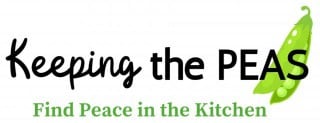


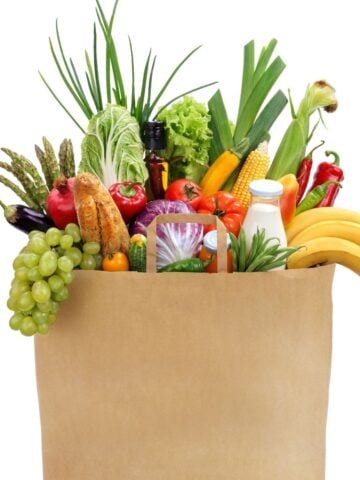
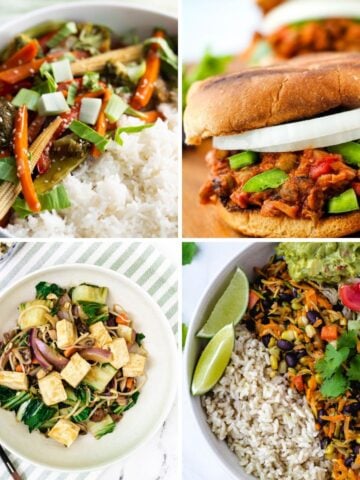
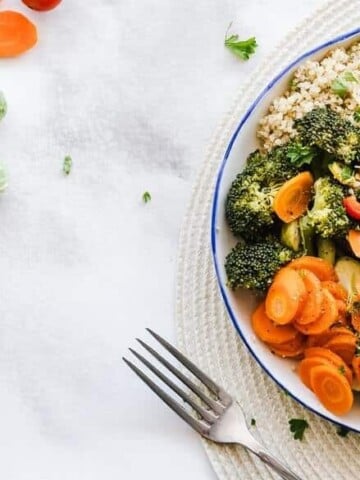
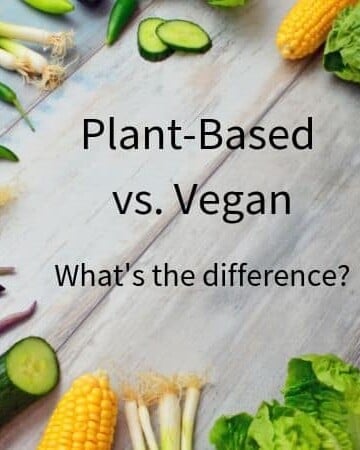
Sandra Ferguson
I could not go to the Lasta app you posted as it said it was blocked because of PUP and I don’t even know what that is. I don’t eat things like Quiona as it is far too high in carbs for me. If there is more on quantity of each item to eat, I would appreciate that. I will be looking at the 7 day meal plan tomorrow but have to make it for one person. I definitely don’t by any snack food or frozen vegan as most of it is full of junk. I have gained 4 pounds since starting to try vegan and am even the smoothies don’t seem to help much. I don’t add any sugar, There is something missing in this for me and I am thinking about going back to my usual foods. Salads are wonderful except for the fact that the dressings have oil. I have IBS, so oil is particularly bad for me. If you use ovocado then you have all the fat content again. I bought Bragg’s but it really isn’t very good. Having IBS, sugar, fat and additives are my enemy. I don’t eat Tofu or any substitutes like that, so protein is also an issue. Any suggestions would be greatly appreciated.
Alison Corey
I’m sorry that the link did not work. I will look into it.